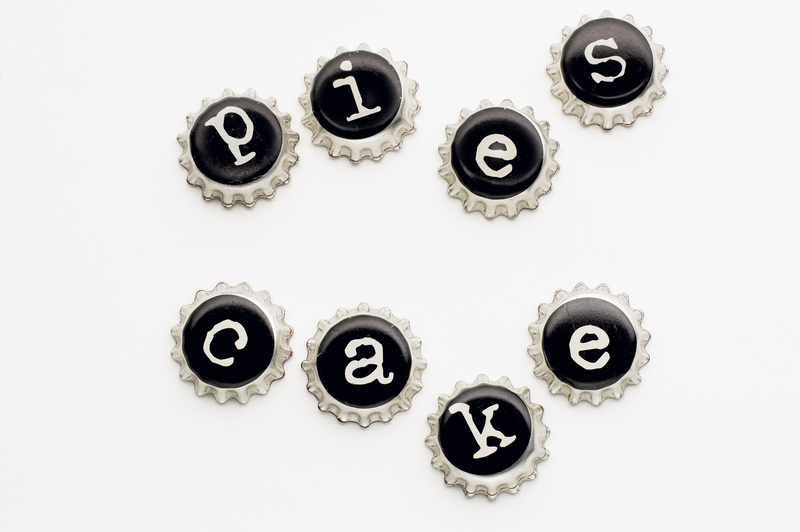Easy-to-Follow Advice for Keeping Clutter Under Control
Clutter can build up quickly, making your home or workspace feel chaotic and overwhelming. Fortunately, with a few simple steps and easy-to-follow strategies, you can reclaim your space, boost productivity, and create a calming environment. This comprehensive guide provides effective decluttering tips and organization solutions to help you maintain a clutter-free life.
Why Is Keeping Clutter Under Control Important?
Living with excessive clutter can impact your mood, productivity, and overall well-being. Studies show that organized spaces:
- Reduce stress and anxiety
- Increase productivity and creativity
- Make cleaning and maintenance easier
- Enhance the aesthetic appeal of your home or office
Keeping clutter under control is not only about visual appeal but also about fostering a healthier, more enjoyable lifestyle for everyone in your space.

Understanding the Roots of Clutter
Before tackling clutter, it helps to understand why it accumulates in the first place. Common causes of clutter include:
- Procrastination: Waiting to put things away "later" can quickly spiral out of control.
- Sentimental attachment: Keeping items out of nostalgia, even when they no longer serve a purpose.
- Poor storage solutions: A lack of functional storage often leads to piles and messes.
- Acquisition of unnecessary items: Impulse buys or gifts that aren't truly needed.
- Busy lifestyles: When schedules become hectic, organization often takes a backseat.
Awareness of these habits is the first step toward overcoming them and taking control of clutter.
Simple, Practical Tips for Managing Clutter
1. Start With Small Steps
If you've ever wondered how to keep clutter under control, begin small. Tackling the whole house or office might feel overwhelming. Try these methods instead:
- Focus on one room or even one drawer at a time.
- Set a timer for 15-20 minutes and declutter during this window.
- Celebrate small victories as each space becomes tidy.
Remember: Consistency is more important than intensity.
2. Implement the "One In, One Out" Rule
For every new item you bring into your space, make it a rule to remove one item. This simple tip will automatically prevent accumulation and help keep clutter under control.
3. Designate a Place for Everything
Clutter often results from items lacking a designated spot. Assign a "home" to everything you own:
- Use labeled bins, baskets, or shelves
- Install hooks, drawers, or racks for frequently used items
- Return items to their spot right after use
This strategy not only keeps things tidy but makes cleaning up quick and painless.
4. Sort and Purge Regularly
A major piece of easy-to-follow advice for keeping clutter under control is to regularly evaluate possessions. At least once a season, go through your belongings and ask yourself:
- Have I used this in the last year?
- Does this add value to my life?
- Is it broken, worn out, or obsolete?
Donate, recycle, or dispose of items that don't pass the test. This routine purging stops clutter before it gets out of hand.
5. Tidy Up Once a Day
Set aside ten minutes at the end of each day to reset your space. This daily habit keeps things manageable and prevents messes from piling up.
6. Use Smart Storage Solutions
If you're short on space, think vertically:
- Install shelves above doors or windows
- Use under-bed or under-sofa storage bins
- Choose multi-purpose furniture with built-in storage
Smart storage makes it easier to keep clutter under control and maximize every inch of your space.
7. Prioritize Clear Surfaces
Clutter tends to collect on flat surfaces like counters, tables, and desks. Commit to keeping these areas as clear as possible. Use trays or baskets as catch-alls and empty them regularly.
8. Stop Clutter at the Door
Prevent unnecessary items from entering your home. Place a basket by the door for incoming mail, packages, and paperwork, and review or recycle as soon as possible.
An Easy-to-Follow Decluttering Routine
Here is a sample routine you can adapt to your needs, ensuring keeping clutter under control becomes an automatic part of your life:
- Daily: Tidy up surfaces and entryways.
- Weekly: Declutter high-traffic areas, review storage bins, and organize mail and paperwork.
- Monthly: Sort through closets, drawers, and shelves. Donate or dispose of unused items.
- Seasonally: Reevaluate larger items (like clothes, decor, kitchen gadgets) and do a deep clean.
Consistency is key to successful, ongoing clutter control.
Room-by-Room Clutter Control Tips
Kitchen
- Keep counters clear by storing appliances you use less than weekly
- Organize cabinets with stackable shelves and turntables
- Dispose of expired food and duplicate utensils
- File away manuals, recipes, and paperwork in a folder or binder
Living Room
- Store remotes, chargers, and magazines in decorative baskets
- Rotate and limit decorative accessories
- Implement storage ottomans for quick clean-up
- Designate a place for blankets, pillows, and games
Bedroom
- Use under-bed storage for seasonal items or shoes
- Edit clothing regularly and donate what you don't wear
- Install hooks for bags, belts, or jewelry
- Make your bed each morning for an instant tidy look
Home Office
- Sort paperwork immediately: Use a filing system for bills, receipts, and important docs
- Declutter your desktop: Keep only essentials within reach
- Organize supplies: Use drawer dividers and labeled containers
- Purge duplicate tech: Donate or recycle old electronics
Bathroom
- Store daily products in labeled baskets or on trays
- Dispose of expired medicines, toiletries, and cosmetics
- Hang towels and robes on hooks, not counters or doors
- Use drawer organizers for small items like makeup and accessories
Tackling Sentimental Clutter
Items with emotional attachment can be the hardest to let go of. Ask yourself:
- Is this memory tied to the item or the experience?
- Could I preserve the memory another way--like a photo or journal?
Consider creating a memory box for small keepsakes and review it annually. Digitize photos and documents when possible to save space while preserving precious memories.
Decluttering for Families and Shared Spaces
Keeping clutter under control in a shared household can be challenging, but it's absolutely possible with teamwork:
- Assign everyone a "clutter zone" to keep tidy
- Make decluttering a fun, family activity (set a timer and play music!)
- Use labeled containers for toys, art supplies, and shared items
- Lead by example--children learn by watching you
Mindful Shopping: A Key To Clutter-Free Living
Adopting mindful consumer habits is a powerful strategy for keeping clutter under control:
- Ask before buying: "Do I really need this? Where will it go?"
- Choose quality over quantity to reduce unnecessary items
- Resist impulse buys by waiting 24 hours before making non-essential purchases
Maintaining Your New Clutter-Free Space
Once you've done the hard work of decluttering, maintenance is essential. Here are some easy-to-follow practices to keep clutter under control indefinitely:
- Regularly revisit clutter-prone areas and tidy them up
- Give everything a place, and return things promptly after use
- Set achievable decluttering goals monthly or seasonally
- Celebrate your success and enjoy your organized, peaceful space

Conclusion: Embrace Simplicity and Enjoy the Benefits
Keeping clutter under control is a journey, not a destination. By actively adopting easy-to-follow routines, practical organization strategies, and a mindful approach to your possessions, you can enjoy greater clarity, peace, and joy in your space. Remember: Start small, keep consistent, and celebrate every step toward a clutter-free lifestyle.
Ready to take control? Start today with just one room, and watch the positive effects ripple throughout every part of your life!
FAQs: Keeping Clutter Under Control
- How often should I declutter? Ideally, declutter high-traffic areas weekly and schedule seasonal reviews for deep cleaning.
- What's the best way to motivate myself? Set small, manageable goals and reward yourself for each completed task.
- How can I keep paperwork under control? Go paperless when possible, use a mail organizer, and file documents immediately.
- What if I share a space with someone who likes clutter? Communicate openly, use assigned zones, and lead by example.
For more easy-to-follow advice for keeping clutter under control, subscribe to our newsletter and join our community of tidy, inspired individuals!